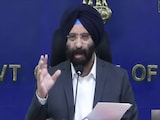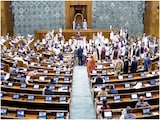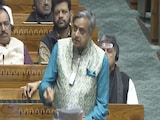One in every five children in the world is out of school, an UNICEF report released on Wednesday said. The report, launched ahead of the 73rd session of the UN General Assembly, differentiates between the number of children out of school globally and those out of school in conflict regions.
In total, nearly 30.3 crore children aged between five and 17 are out of school, the report by the UN's children's agency said. According to the report, one-third of the children who are out of school globally -- approximately 100 million -- live in conflict or disaster-affected countries.
The report, titled "A Future Stolen: Young And Out-Of-School", explains that one in five children aged between 15 and 17 living in or affected by conflict have never even entered any school and two in every five never completed primary school.
"When a country is hit by conflict or disaster, its children and young people are victimized twice. In the near term, their schools are damaged, destroyed, occupied by military forces or even deliberately attacked, and they join the millions of young people out of school, and as the years progress they seldom return. In the long term they - and the countries they live in - will continue to face perpetuating cycles of poverty," said Henrietta Fore, UNICEF Executive Director.
Based on the UNICEF report, the world needs to fund education on a war footing. Providing this future workforce with quality education and better employment prospects will yield greater economic and social dividends, the report said.
Currently, less than 4 per cent of UNICEF's global humanitarian appeals are dedicated to education. By current trends, the number of 10 to 19 year olds will rise to more than 1.3 billion by 2030, the report said.
The report calls for "more investment in quality education from pre-primary to upper-secondary, in a safe environment within countries affected by complex humanitarian emergencies and protracted crises".
The UNICEF chief concluded by saying: "This is a critical moment in history. If we act wisely and urgently, we can empower and skill young people to be prepared to create peaceful and prosperous societies. The alternative is too bleak. We cannot afford to fail."















